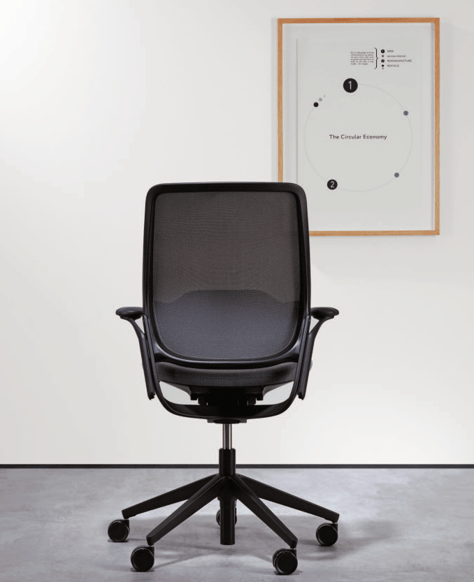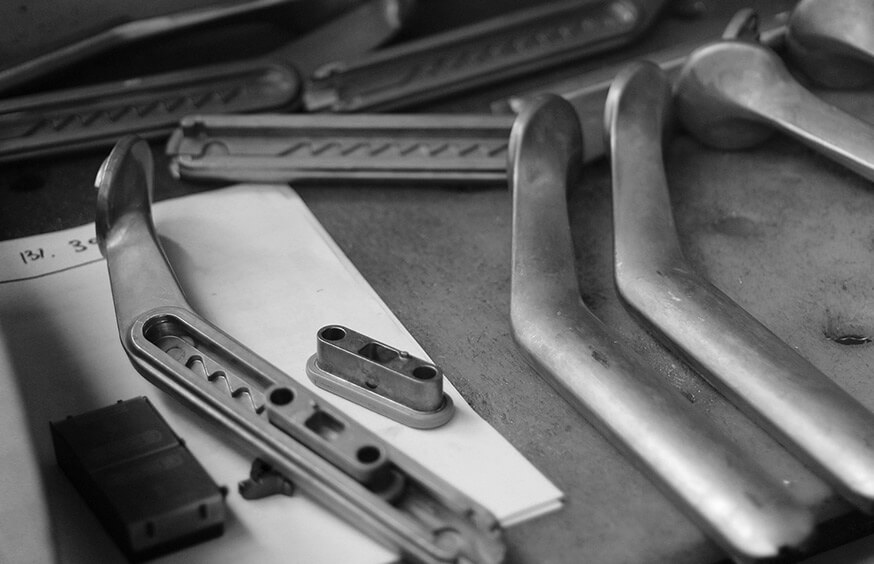When it comes to creating a sustainable office, choosing between the infinite number of furniture products available can be overwhelming. One of the questions people often wonder is whether to buy new or second-hand.
Used office furniture may be cheaper upfront and more environmentally friendly, but will it last? With a new product, you know exactly what you’re getting, and you can still look for sustainable options, like those made from recycled materials.
But what about remanufactured office furniture? What is it? And what are the potential benefits?
What is remanufacturing?
"Remanufacturing is the process of rebuilding a product to specifications of the original manufactured product using a combination of reused, repaired and new parts."
It requires the repair or replacement of worn out or obsolete components and modules. Parts subject to degradation affecting the performance or the expected life of the whole are replaced.
With remanufactured office furniture, old items are dismantled and components are restored or replaced. The individual parts and the whole product are then tested to ensure it is within its original design specifications.
From the customer viewpoint, remanufactured office furniture should provide the same performance as a new, single-life product. The product can also come with a revised warranty period, depending on the work completed.
A sustainable option
Sustainability is vital for businesses going forward. And designing office furniture products that can be remanufactured with multiple lives provides enormous eco benefits.
Remanufacturing is key to the circular economy. Keeping parts and products in circulation for as long as possible breaks the cycle of “take, make, throw away” in which resources are extracted, turned into products, used, and discarded.
Office furniture items such as desks and chairs have long been a burden on the environment, often ending up in landfill. The process of remanufacturing, or any product built to be reused or recycled (like the Steelcase 'Think' chair), helps put a stop to this.
Remanufactured office furniture can also generate BREEAM and LEED credits. These building certifications are increasingly being used to improve the sustainability of the built environment, and using remanufactured office furniture is one way to make your project more sustainable.
Many manufacturers now offer support services that allow products to be returned, making it easy for products to be remanufactured:
- Take back schemes - unwanted furniture is removed, processed and resold
- Trade-in schemes - old products can be traded in for a newly remanufactured product
Benefits beyond the environment
As well as being highly sustainable, remanufactured office furniture offers a number of other benefits.
- Reliable - Parts have already been stress tested in office use, meaning any parts with structural flaws have already been filtered out.
- Lower prices - Remanufactured furniture products can be cheaper than the cost of new products due to cost savings made from the recovery of materials.
- Tailored solutions - From colours and finishings to sizing, remanufactured office furniture can be tailored for your office space.
- Purchase flexibility - As manufacturers have a real interest in knowing where their products are and recovering them, they may offer customers services beyond the initial sale, such as leasing, take-back schemes, maintenance and upgrading.
Orangebox - giving products a second life
Furniture manufacturer Orangebox aims to ensure that at the end of their 'first life', chairs can be upcycled, remanufactured or repaired to their original condition. The Orangebox Eva chair, for example, can be remanufactured at the end of its first life to give it a second one.

Luke Palmer, Senior Principal Designer at Orangebox says:
“We’ve been passionate about evolving designs that could come back into the factory, and as efficiently as possible, be stripped back down to the bare essentials, or just refreshed, and go back out into the field for as long as possible. If you’ve created C02 as a result of manufacturing assemblies, the best thing you can do is to keep them in the field for as long as you can.”

The UK-based manufacturer has also collected thousands of G64 chairs, retested them, replaced arm pads and materials, then sold them back out into the market at a reduced price - and with the warranty of a new product.
Before you buy
Whether you’re leaning towards buying new, remanufactured or used office furniture, it’s important to first understand what your needs are.
Perhaps you're transitioning to a hybrid work model. A variety of chairs and workstations will support people to work together and alone as needed. And acoustic screens can help reduce noise travel between different zones within an open plan setting.
An office furniture consultancy can help you to understand what you need from the working environment for your team to be happy and productive, and advise you on the best products to meet those needs.
Summary
Buying remanufactured office furniture is a green and cost-effective option. But ultimately, knowing what your needs are is going to make the difference between making the right office furniture choice for your workspace, and making a wrong one.









